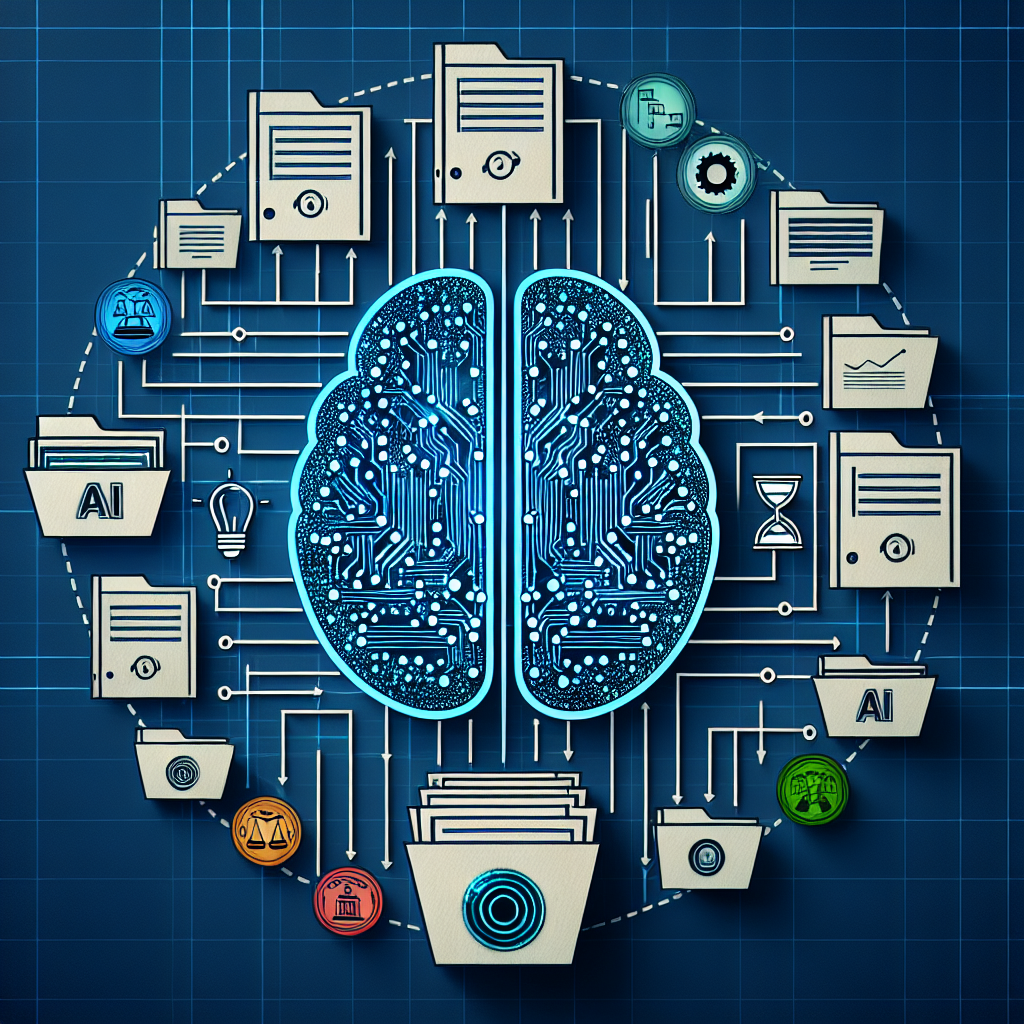Artificial intelligence (AI) is transforming the way legal professionals manage cases and optimize workflows. By leveraging AI technologies, law firms and legal departments can streamline their processes, increase efficiency, and improve decision-making. In this article, we will explore how AI is being used in legal case management and workflow optimization, as well as address some common questions about this emerging technology.
AI in Legal Case Management
Legal case management involves the organization and tracking of all the information and documentation related to a legal case. This includes managing deadlines, scheduling court appearances, coordinating with clients, and preparing legal documents. Traditionally, legal case management has been a time-consuming and labor-intensive process, requiring lawyers and paralegals to manually handle a large volume of information.
AI technologies are revolutionizing legal case management by automating repetitive tasks and providing valuable insights to legal professionals. For example, AI-powered software can automatically categorize and tag documents, extract key information from contracts, and predict case outcomes based on historical data. This not only saves time and reduces errors but also allows lawyers to focus on more strategic tasks, such as case analysis and client interaction.
AI in Workflow Optimization
Workflow optimization is another area where AI is making a significant impact in the legal industry. Workflows in legal settings can be complex and involve multiple steps, handoffs between different team members, and coordination with external parties. AI technologies can help streamline these workflows by identifying bottlenecks, suggesting process improvements, and automating routine tasks.
For example, AI-powered workflow optimization tools can analyze how legal documents are processed within a firm, identify inefficiencies in the process, and suggest ways to improve the workflow. By automating repetitive tasks and providing real-time insights into the status of each task, AI can help legal professionals work more efficiently and effectively.
Common Questions About AI in Legal Case Management and Workflow Optimization
1. How can AI help with document management in legal cases?
AI technologies can automate the categorization, tagging, and extraction of key information from legal documents, making it easier for legal professionals to organize and access relevant information. This can save time and reduce errors in document management tasks.
2. Can AI predict case outcomes?
AI-powered software can analyze historical case data and predict outcomes based on similar cases in the past. While AI predictions are not always 100% accurate, they can provide valuable insights to legal professionals and help them make more informed decisions.
3. How does AI improve workflow optimization in legal settings?
AI technologies can analyze workflows, identify bottlenecks, and suggest process improvements to help legal professionals work more efficiently. By automating routine tasks and providing real-time insights into workflow status, AI can streamline workflows and increase productivity.
4. Is AI replacing human lawyers in legal case management?
AI technologies are not meant to replace human lawyers but to augment their capabilities and improve efficiency. While AI can automate certain tasks and provide valuable insights, human judgment and expertise are still essential in legal case management.
5. What are the potential risks of using AI in legal case management and workflow optimization?
Some potential risks of using AI in legal settings include data privacy concerns, algorithm bias, and the potential for errors in AI predictions. It is important for legal professionals to carefully evaluate AI technologies and ensure they are used ethically and responsibly.
In conclusion, AI is revolutionizing legal case management and workflow optimization by automating tasks, providing valuable insights, and streamlining processes. While there are some risks associated with using AI in legal settings, the benefits of increased efficiency, improved decision-making, and enhanced productivity make it a valuable tool for legal professionals. By embracing AI technologies, law firms and legal departments can stay ahead of the curve and deliver better outcomes for their clients.

